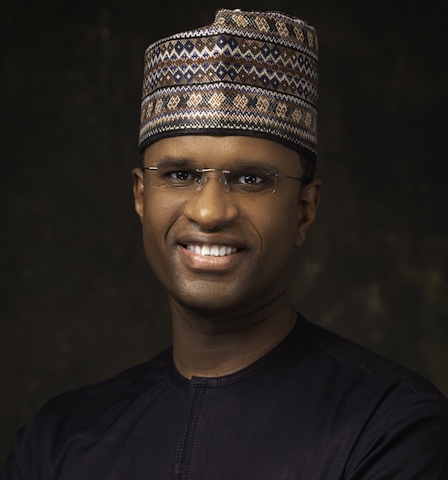
Emotion has a place in human life, but it must never replace clear thinking. Growth requires a sense of fairness and responsibility. A country that runs on sentiment will always reward indiscipline and frustrate those who play by the rules. Nations that succeed do so because they respect principles, not feelings. If we continue to let emotions rule our sense of right and wrong, we will keep excusing disorder and holding back the very people who could make things better.
There is something deeply wrong with the way many Nigerians understand fairness. Too often, we side with the underdog without asking who is right or wrong. If a rickety taxi or a Keke NAPEP collides with a well-maintained car, the crowd quickly gathers to defend the Keke rider. People insist that the car owner should take him to the hospital, pay his bills, or simply forgive him for the damage inflicted on his car because the Keke rider is poor and struggling. The law no longer matters. Emotion takes over, and pity becomes more important than justice. This same attitude shows up in other parts of life. If your neighbour earns less than you, you are expected to tolerate their behaviour, no matter how much it affects your comfort or health. A neighbour who burns waste or wood openly, filling the air with smoke, gets away with it because people say you should be patient. If you complain too much, you are called proud or wicked. We have created a country where irresponsibility is excused by poverty and success is treated like a crime.
This thinking comes from the mistaken belief that humility belongs to the poor and arrogance belongs to the rich. Many Nigerians assume that poor people are automatically humble, while wealthy people are naturally proud. Life has never worked that way. Arrogance and humility are not tied to how much a person earns. There are proud poor people and kind poor people, just as there are proud rich people and kind rich people. Character does not follow social class. Anyone who believes that only poor people are good and rich people are bad has not learnt enough about human nature. If we want to build a society that works, we must stop judging people on the basis of emotions or their economic statuses. Fairness means calling wrong what it is and calling right what it is, no matter who is involved. Compassion is good, but it should not be used to defend wrongdoing.
A small event on social media captures this problem clearly. The family of a late Nigerian leader announced the death of the leader’s spouse, using a letterhead that carried the Nigerian coat of arms. Someone commented that it was wrong for a private family to use a national symbol, and immediately Nigerians attacked him for being heartless during a time of mourning. They missed the point. The issue was not about empathy but about principle. Wrong is wrong, even when someone is grieving. But many Nigerians cannot separate emotions from logic. This habit of emotionalising everything is one reason we are still struggling as a country. In places that function, the law does not bend to feelings. If you drive carelessly and hit someone’s car, your insurance pays for the damage, and you may still face punishment. If you fall sick, you return to work and complete your tasks because pity does not replace responsibility. Development depends on order and discipline, not sentiment.
If Nigeria wants to move forward, we must begin to separate emotion from justice and pity from truth. Poverty should not give anyone the right to misbehave, and wealth should not protect anyone from punishment. People should be judged by how they act, not by how much they have. If a Keke rider damages another person’s car, he must be held responsible. If a neighbour pollutes the air, they must be stopped. If someone misuses a national symbol, they must be corrected.
One of the biggest weaknesses of the Nigerian society is the confusion between emotion and morality. We think compassion means siding with the weaker person, even when that person is wrong. We believe pity is justice. When a society rewards irresponsibility and shames those who follow the rules, progress becomes impossible. Why would anyone try to do better when carelessness brings sympathy and attention? Why obey laws when breaking them earns forgiveness? This is how we slowly destroy fairness and make people lose faith in doing what is right. Nigerians also use emotions to avoid consequences. When caught breaking the law, people cry, beg, and act helpless, and the crowd supports them. Instead of insisting on justice, we start talking about how difficult life is or how much the person has suffered. Suffering is real, but it should not be used as an excuse for misconduct. A community cannot grow if pity is stronger than discipline.
The same attitude shapes our politics. We support leaders not because they are capable but because we feel for them. We defend corruption by saying a person has helped the poor. We protect failure because the person is “our own.” Emotion becomes the cover for incompetence. That is why many corrupt people are still celebrated in public. We have turned empathy into a weapon for avoiding accountability. If Nigeria wants to move forward, we must begin to separate emotion from justice and pity from truth. Poverty should not give anyone the right to misbehave, and wealth should not protect anyone from punishment. People should be judged by how they act, not by how much they have. If a Keke rider damages another person’s car, he must be held responsible. If a neighbour pollutes the air, they must be stopped. If someone misuses a national symbol, they must be corrected. These things are not cruelty; they are how a society maintains order.
Emotion has a place in human life, but it must never replace clear thinking. Growth requires a sense of fairness and responsibility. A country that runs on sentiment will always reward indiscipline and frustrate those who play by the rules. Nations that succeed do so because they respect principles, not feelings. If we continue to let emotions rule our sense of right and wrong, we will keep excusing disorder and holding back the very people who could make things better. Fairness is not about who has less or who has more, but about choosing what is right, every single time. Until we learn that, Nigeria will remain trapped under the weight of emotion and its consequences.
Mohammed Dahiru Aminu ([email protected]) wrote from Abuja, Nigeria.











